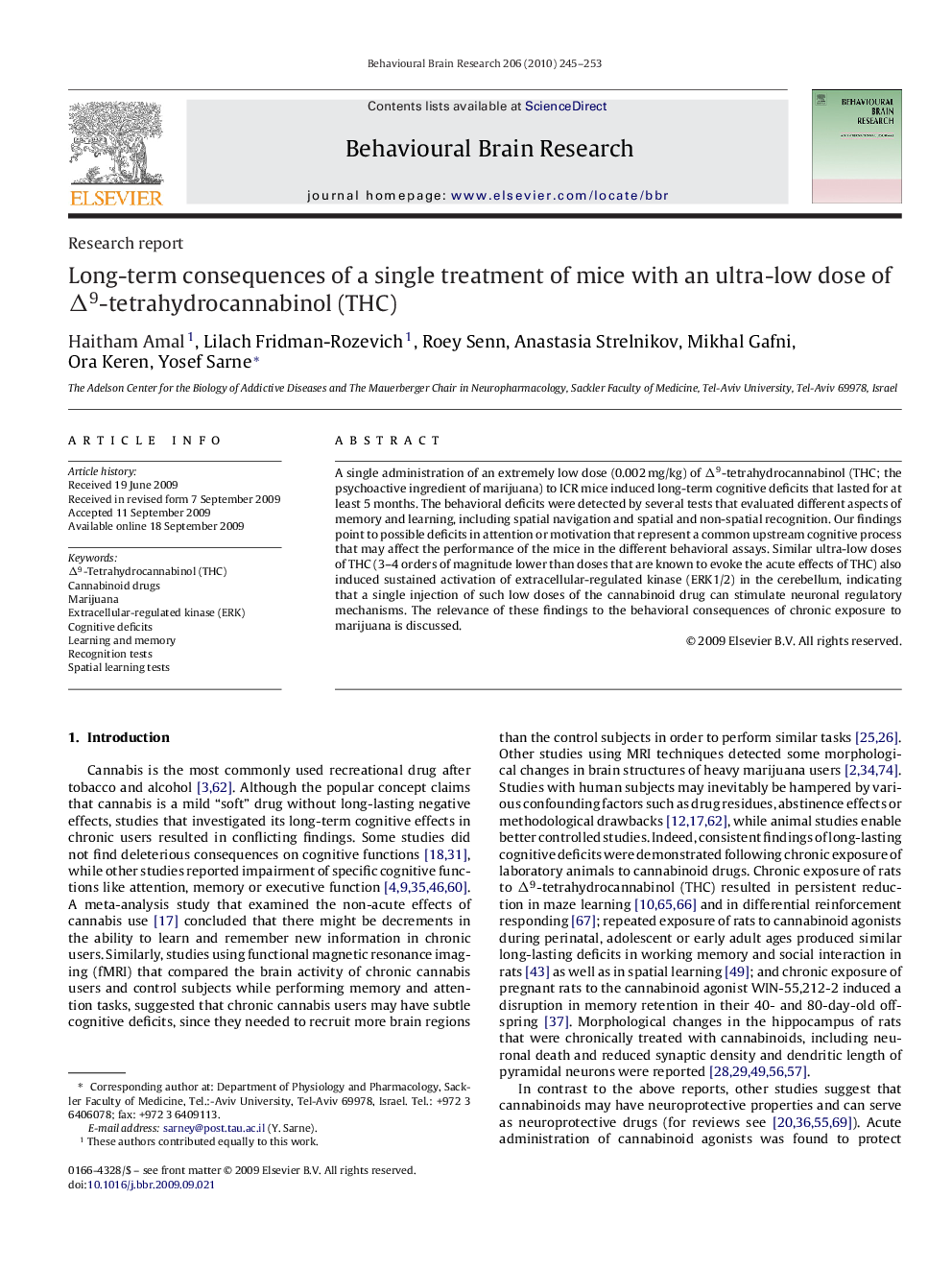| Article ID | Journal | Published Year | Pages | File Type |
|---|---|---|---|---|
| 6260153 | Behavioural Brain Research | 2010 | 9 Pages |
A single administration of an extremely low dose (0.002Â mg/kg) of Î9-tetrahydrocannabinol (THC; the psychoactive ingredient of marijuana) to ICR mice induced long-term cognitive deficits that lasted for at least 5 months. The behavioral deficits were detected by several tests that evaluated different aspects of memory and learning, including spatial navigation and spatial and non-spatial recognition. Our findings point to possible deficits in attention or motivation that represent a common upstream cognitive process that may affect the performance of the mice in the different behavioral assays. Similar ultra-low doses of THC (3-4 orders of magnitude lower than doses that are known to evoke the acute effects of THC) also induced sustained activation of extracellular-regulated kinase (ERK1/2) in the cerebellum, indicating that a single injection of such low doses of the cannabinoid drug can stimulate neuronal regulatory mechanisms. The relevance of these findings to the behavioral consequences of chronic exposure to marijuana is discussed.
